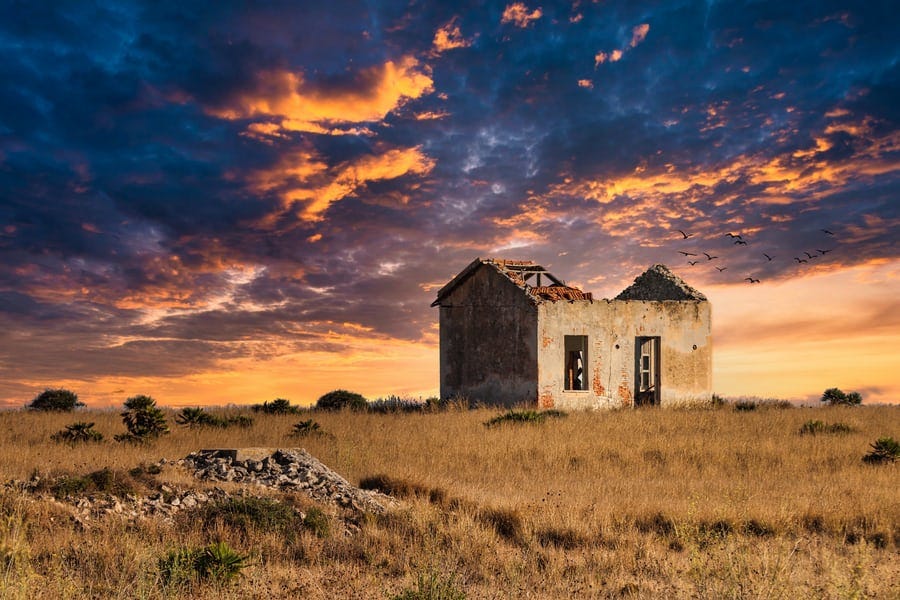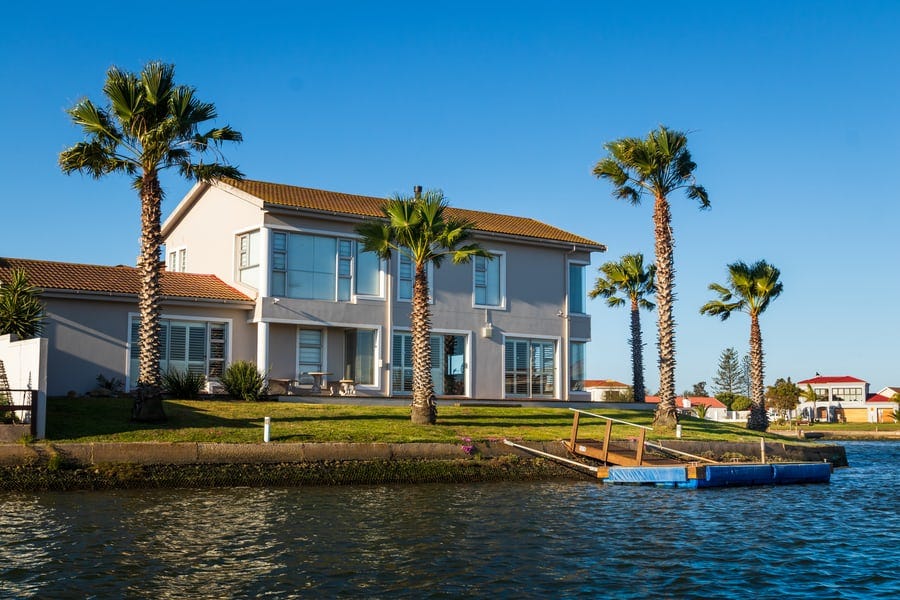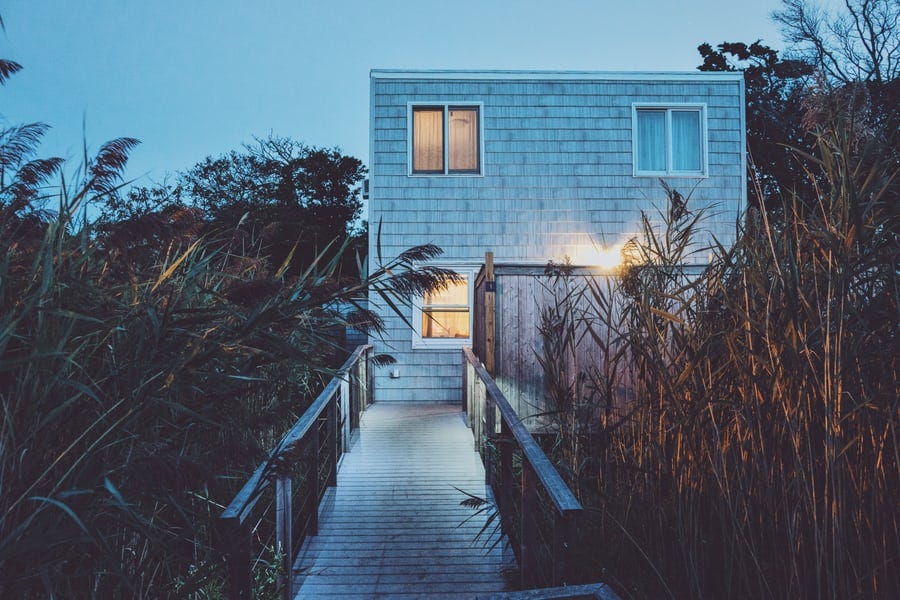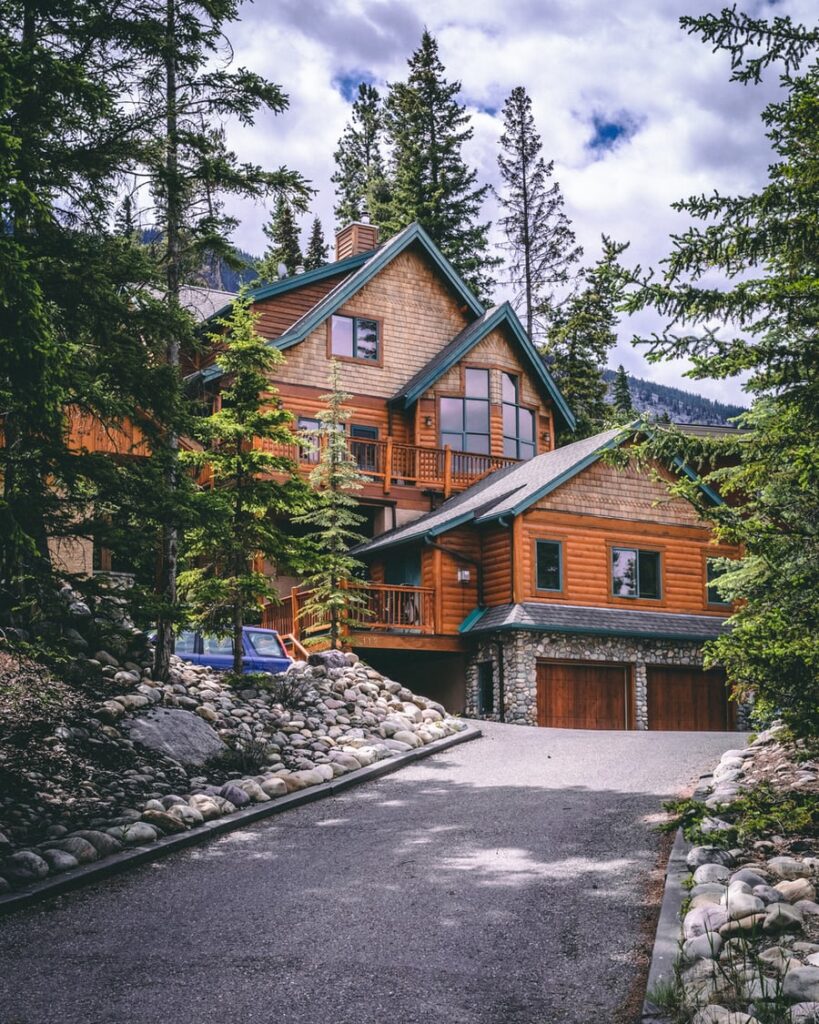It’s no surprise homeowners are wealthier than renters but did you know they are actually less happier, healthier, and more stressed as well?
If you had the choice to own a second home, most of us would say of course!
2 is better than one! Duh!
More land, space, freedom, and stuff to store.
Yet overtime with most things, we get used to them and quickly realize they are in our hands to upkeep.
Life Lesson: Always expect things to be more expensive than they seem. Especially real estate.
There’s no better example than regretting your decision than with heavy duty real estate. 80% of millennials in the last year alone regret their rushed upgraded home purchase! Slowly but surely we realize we don’t need a home on a random lake that takes 5+ hours + 3 hours of traffic to get to and once we get there it is another hassle to handle.
Our home is our sanctuary but it would be wrong to say it is always fun, luxurious, comfortable, and easy going.
It’s a chore, duty and responsibility. Just like a child, a home is never content and something is bound to happen. From holding your breath every time there’s a hurricane to needing a speed-dial contact list of 60 different roofers on the day a bomb cyclone comes to town, there’s a lot you must consider in a home that isn’t part of an apartment owners’ or renters’ manual.
Weighing opportunity cost in every situation is crucial. There are pros and cons to everything and nothing will ever be perfect. There’s always something to fix especially in a home. Every decision and choice comes with consequences. Our life is a series of choices and whichever one we make, we will have to adjust to accordingly.
Buying a home is part of the American Dream and a staple of life. Everyone wants to have the feeling of owning a physical tangible asset. Real estate is by far the greatest alternative asset because of the utility factor and many more benefits that your favorite BigTech high-flying Virgin Galactic out of this world stock won’t get you.

Why Real Estate Is Too Enticing To Pass Up
The largest purchase one makes in their lifetime is a home.
The most common purchase a lottery winner or someone who inherited or earned a little extra this year makes is on a home or another one.
See a pattern?
Owning something physical feels powerful. It is yours and no one can control it. Owning more shares of Tesla doesn’t feel nearly as good, even when they hit a trillion dollar market cap
Although renters don’t have to clean up after themselves, can just call up the landlord anytime to replace something they broke, and simply move in and out dropping off the keys every few years, these short-term conveniences make it harder for them to build wealth long-term.
Renters typically fall into two categories.
A: You are still trying to adjust into your new lifestyle. You my have just graduated, still finding what job fits and don’t want to stay anywhere permanently with no stable income. Plus you know that rent eats into the tight budget with not enough disposable income to spare
B: Your net worth is at least 50x+ your income that you can move all you want and you prefer to rent luxury, buy utility as celebrities tend to resort to. Unfortunately this is also a quick way to go broke so spend and plan appropriately
No way of housing is suited for everyone. You must consider your financial means, constraints, short and long term goals, risk tolerance, and gut, the most precious deciding factor as Bezos to Gates tout.
Home Bound
Before we step into the lives of the fitly rich and the decision of whether to purchase a Hamptons home or not, let’s understand why owning some sort of real estate is ideal and why everyone should strive for it at some point in their lives.
Believe it or not, not all real estate is physical and it doesn’t have to break the bank thanks to new fancy FinTech offerings. Whether it’s REITS, real estate properties managed by companies that act as equity or crowdfunding opportunities via Fundrise or CrowdStreet, not sponsored or affiliated in any way, these non-traditional real estate opportunities can offer you an opportunity to invest across the country without having to deal with any renters or renovations. Whether you want homes specifically located in the Sunbelt, in upstate NY or want to choose the specific type of property from agricultural, manufacturing, industrial, commercial or residential, this can all be done from the click of a button.
You can never go wrong with real estate as a part of your portfolio. It is a great hedge against inflation, offers diversification, and believe it or not, with less risk you can earn more return.
When it comes to physical tangible real estate, here are its unbeatable advantages. Just remember, more work = more reward.
-Tangible, physical asset that cannot be replaced or traded in real-time
-Powerful networking connections with renters if you choose to
-Great source of passive tax-free income
-Can depreciate the asset as it appreciates-write off expenses as tax-write off e.g. can buy Tesla and prove you drive clients around or use it to drop off cleaning supplies, etc.
-Grows in value and ppareictes everytime it is used
-You never have to sell as long asyou onitnue to pay off the morgga, proeprety taxes and maintenance and other expenses plus rental income can pay for those expenses in themself
-No one can take it away from you
-Offers utility and capital preservation
-Hedge against inflation and uncorrelated to the market-in times of crisis or expansion, people need to move in good and bad times due to certain situations
-Always in-demand, someone will need to live somewhere eventually
Now that we’ve uncovered then wonders of real estate in various forms, lets get real and dig into the top 10%’s problems.

Home Away From Home
If you have the privilege to consider a second home or been spending too much time scrolling on Zillow, you may have noticed it is much harder to manage several homes and a far bigger problem than people expect.
For one, selling and purchasing one usually comes at a hefty cost. It is much harder to get a good deal on a beach home and at the end of your stay, sell it at the top of the market since the pool of buyers who can afford or want it is extremely small.
The purpose of a second home is to get a change of scenery and not be trapped at home. It can be considered a weekend getaway or in replacement of a vacation to somewhere new each year. Just like your primary residence, hard to believe until you start using it, you will soon get bored and probably not want to go to the same lake every summer and instead explore the world instead.
One would assume having a vacation property on the water should be easiest to manage but unfortunately, the more physical items, land, property you own, the more valuable it is and in turn, becomes more risky, prone to hazard, and insecure.
The most obvious reason second homes are a true pain is due to the fact that the owner only uses it during select times of the year. If it’s a vacation home, it should be at least a couple hundred miles away for it to be considered an oasis. But everyone is different and some people just want to cook in a different kitchen and sleep in a different bed every weekend and get a weekend getaway cabin a few minutes away.
Whatever the case may be, the fact that one isn’t there 24/7 means one either has to pay a management company to look after the property or awkwardly ask their neighbor to take care of it while you’re gone. Only problem is that the neighbor most likely doesn’t live in Hawaii all year long either since they can afford such land themselves.
In sum, never be dependent on anyone. Especially when it comes to your belongings and assets.
Even your own home must be a hassle in some regards. The other day our fridge randomly decided to shut off and turn dark. Not until I got home, 8 hours later I noticed it leaking. In a beach home miles away that one only ventures out to a couple times a year, this could have been going on all year round! I can’t imagine the amount of invisible stress second homeowner’s have. I’m even nervous not knowing what I’ll find in my apartment only a few hours later! Cockroaches to leaks, properties are a royal pain not made for a royal. This high gadget tech world is not helping us and no pun intended, instead breaking and disconnecting us.
Although it’s not advised to keep any perishables in the fridge for months at a time, the main point is that something can go wrong anytime. If it’s physical, relies on batteries not the sun or wind, expect it to die or stop working soon.
That’s a royal pain these royals can’t always afford to deal with as their time is their most precious commodity. In order to afford such an oasis, they need to keep earning enough money which tends to happen outside of the home not on the beach.
In the real world, no one works on their laptop on the beach. Unless you are a broke digital nomad impressing others with your passive income streams.
Plus on top of all this hassle, buying and selling a property overtime is a true pain. Usually beach homes require a ton of routine renovation and upkeep. Form erosion to wildlife, theft to break-ins, the nicer and secluded the property, the more likely it will be looked after for the wrong reason.
Not only that, renovations can easily cost more than what the property is worth as you need permits to do renovation on certain islands and it costs more to hire someone to drive an extra hour or two to come to your secluded oasis.
On the Long Island Shore a.k.a the Hamptons, about 2–3 hours away from Manhattan, everything is roughly 3–7x more expensive than in the city due to transportation and shipping costs. I thought NYC was already expensive. Boy was I wrong! Plus I’m convinced merchants raise the prices for Hamptonites because they know residents will still pay for a $70 lobster roll no matter what.
And last but not least, you always have to think about the ROI you are receiving from your property. If you own a second home in overpriced states such as Florida, California or NYC, it should be second nature to always evaluate if you’re getting your bang for your buck.
If it’s not serving you which will unfortunately happens more often than not to most you have to decide how you will be able to navigate the selling process without splurging on fixing up this royal mess. No homeowner will make an immediate ROI from just buying one. It takes at least a few years and unexpected optimism in the real estate market to make a profitable return. If you plan on living in the home or using it for less than 5 years, it’s not worth it. From the closing fees to monthly charges, renovations to broker fees, see if it’s really enhancing your life or not.
At the end of the day, what’s most important to ask is if the home feels like a vacation or not. Although the amount of properties one owns skyrockets in accordance to their wealth, this isn’t always a logical move. If you enjoy traveling and don’t want to maintain or deal with hiring people to deal with a property you barely use, it’s probably not worth it to own any real estate beyond your primary estate. After all, the time spent dealing with a property isn’t always proportionate to the energy you can devote elsewhere.
Owning more properties doesn’t make one wealthier.
There’s absolutely nothing wrong with taking monthly excursions across the world or booking a hotel for a bit more than you would like but in return, getting to settle there for a few days, not worry about cleaning or grocery shopping, and once you are done with your stay, pack up the Tesla and just drive away with no worries if the beach property will stand the storm this winter.
After all, being financially free and flexible doesn’t mean being able to buy whatever you want. At the end of the day, whatever you acquire is still your problem and in your hands to maintain. You can delegate it to someone else but you still own it and have to put in that extra work. It won’t magically disperse and land on someone else’s shoulders. Sure you can hire maids and assistants but you still need to hire, manage them and make sure they aren’t taking advantage of you or stealing your stuff! You need to remember to place Nest cams all over the property, do background checks on them and conduct interviews which can easily be a waste of your precious time and another job in itself!
If you have a retired neighbor who offers to take care of your vacation property, terrific but that is very rare and can be scary as well since they can loose the keys or even forget to lock the door. Endless things can go wrong!
Being able to use your time to your advantage and delegate it to your choosing is real financial freedom and flexibility. I’m not saying don’t get a secondary home. If you want one, just realize the hassle it delivers and that you might need a vacation from it!

Ideal Buyer Of Secondary Properties
Sadly, there is only a sliver of the U.S. population that can reasonably afford their PRIMARY residence. “Reasonably afford” means either being able to appropriately manage the mortgage payments and are on track to pay it off soon no problem or have no mortgage and paid it out in full or fully 100% in cash. C
urrently there are 79.36 million owner-occupied homes and this number has doubled since 1975. This represents 65.4% of the U.S. It’s reassuring to see that homeownership has risen past the fear from the Housing Crisis in 08 and especially during the pandemic but when you dig into the numbers, they aren’t so pretty.
According to CBS News, the average American cannot afford a home in 70% of the country. Cities are raising their cost of living to an extreme extent even when WFH seems to stay. Nationally, earning $1M in general is a top 10% income and can get you a 10 bedroom house in Georgia but in San Francisco or NYC maybe a studio if you’re lucky without rodents or loud neighbors.
With booming housing prices fueled by the pandemic, low inventory, exorbitant shipping costs and lumber prices, these constraints have further exacerbated housing affordability particularly for millennials, African Americans, and Hispanics. In cities across America, affordable housing is being replaced by luxury high-rises. The most lucrative way to build a nest egg and curate equity is through real estate and it is slowly becoming extinct. Americans who are desperate for a home are either flocking to the Sunbelt strip or Florida where they can reasonably afford one but have to sacrifice their earned income instead. At least they’ll pay no income tax that will inflate their earnings a bit higher.
In 2020, approximately 62% of U.S. homeowners had a mortgage which makes sense since only 39% of Americans could afford to pay for an out-of-pocket $1k emergency expense. Without cash, there’s no way you can pay for your home in full or put down a reasonable deposit of more than 20% in cash.
Although the recommended deposit on a home is 20%, the range is more like 5–10% especially these days as homes are selling for a premium and more young buyers, millennials who’ve endured 2 recessions to this point have the least amount of disposable income and are the first generation that will be worse off than their parents.
According to RocketMortgage, the average down payment in America is equal to 6% of the borrower’s loan value and it is possible to go down to as little as 3% depending on how strong your credit score is and the loan type. (Not recommended!) This reveals that people are taking on way too much leverage to invest, although the best investment to do so is with real estate. Americans look way better than they really are. Lots of Americans can afford a multi-million dollar home if they put 2% down! They’ll just have to pay $10k per month on a 15-year fixed mortgage.
I would rather downsize and live comfortably being able to take a modest few vacations per year and not struggle than live in a mansion by the sea counting my pennies.
You do you but most people are stretching it, even with their primary residence.

Luxury Without The Price-Tag
Having an extra property isn’t just reserved for the elite, although only ~9.26 million Americans live in a home away from home. This is about 10% of homeowners.
Along with your primary residence, there may be no need to have a second or multiple especially if you just upgraded your current one to better suit your needs during lockdown if you were able to do so with the massive construction bottlenecks.
All in all, the more stuff you own, the more repair, maintenance, and care it needs. That’s just the nature of it. No wonder minimalists are calmer and happier. While when you buy more shares of Tesla, there’s no upkeep or maintenance, just sometimes headache and confusion when Elon tweets nonsense once again.
One would assume the city is a vacation in itself with everything at their disposal never having to leave. Yet as a life-long New Yorker, I will say it doesn’t feel that way. It is an exhausting city the more you stay here. Almost everyone I know who lives here full-time has a second home of some sorts.
I would like to break down the main reasons for a secondary home into 3 categories.
- Real Estate As An Asset Class
- As a Sanctuary + Security
- Additional Income Source
Just like with your primary residence, having a portion of your net worth in real estate is a great diversifier and valuable especially when the stock market tanks. As long as you have equity in your home and able to afford the monthly payments, you are rising the social economic ladder. Since it is uncorrelated to the stock market, I would suggest digging in for deals on homes when the market gets into correction territory a.k.a drops by 10–15%.
We’ve touched on why real estate is by far one of the greatest assets that everyone’s portfolios should have exposure to. Of course if you are able to buy your home out in full cash, which most people cannot, go for it so you don’t have to keep track for multiple mortgages when owning multiple properties. But by simply owning real estate, it won’t appreciate right away. It is a patience game and must be kept in prime condition for you to keep it long enough that it rises above the market.
Obviously there’s no point in purchasing a second home if you don’t want to do anything with it. If you are a full-time solo-entrepreneur or Facebook employee who can work from home full-time forever, then you seriously want to consider upgrading to a second-home. I don’t believe it makes sense for high-earners to simply resort to buying more homes when they hit a certain net-worth target.
I understand that’s the first purchase they want to make when their net worth rises due to the powerful gains in real estate but it can cause them more headache and not provide a great ROI in the end. I’m convinced that a second-home will provide the most utility and increase your cap rate if you live, sleep, breathe and eat there for more than 10 hours a day, 5x a week for 5+ years. Even if you have the funds to buy a multi-million dollar palace in Miami, if you’re working, traveling, never home, and forget about your multiple estates preferring hotels instead, it’s not worth the hassle.
Lastly, rental income doesn’t just provide you another income stream and appreciable asset, it can be turned into a full-fledged business. You can also split your time in the home in between seasons to rent it out while using it yourself so you don’t feel that bad about having it empty 10 out of the 12 months in the year. Millions of people have dedicated their life’s work to owning rental properties and micro-managing their tenants. If you enjoy it, you may pick up on another property and decide to quit your main job which got you started in the first place to now flip properties and manage rentals for the rest of your life. Real estate is a universal asset because it provides many sources of income and no matter who’s living there, it’s still appreciating as long as you don’t spend too much money on it too quickly.
Homeownership is part of the American Dream. If you do have the means to buy your ultimate Santorini escape, go for it but it may not be as relaxing as you hoped it would be. Without going into the specifics and top 1%’s problems, having to deal with minor annoyances such as directing the mail to neighbors, security, and taxes can be a problem if you don’t name your primary estate accordingly or end up working in a lower or zero income tax state just for the pandemic.
I hope everyone reading this will one day be able to afford the property of their dreams. If you’re dying for a second home, it can be your parent’s resort or even a small cabin. Nothing fancy if you really aspire for one. For now, I’ll be sticking with my rental properties and primary residence with my family. For our mental sanity and time, we prefer to get away somewhere different each time we can and choose to pay a little extra for a hotel which in hindsight saves us more in the end. Vacations are boring as well! If you’re someone who prefers change and cannot be attached to one place for 5+ years, homeownership might not be the right fit for you!
Whether or not you want a piece of your net worth in real estate or not, through aggressively saving and reinvesting we can all become as wealthy as the richest generation in history, the Baby Boomers who’ve been doing it for 40+ years!

